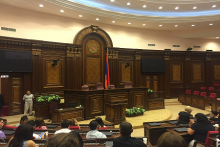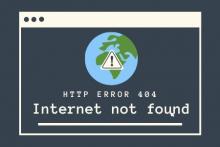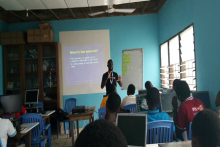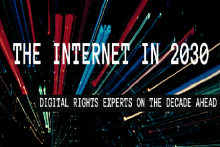Armenia’s new digital disinformation bills threaten free speech and press freedom
In the wake of a recently reignited war with Azerbaijan in 2020, concerns about the spread of digital disinformation in Armenia have grown. So much so that a raft of legislation has been proposed by lawmakers in the Armenian parliament to address the issue. However, some of the current proposals would severely impact journalists’ ability to cover stories of public interest.









